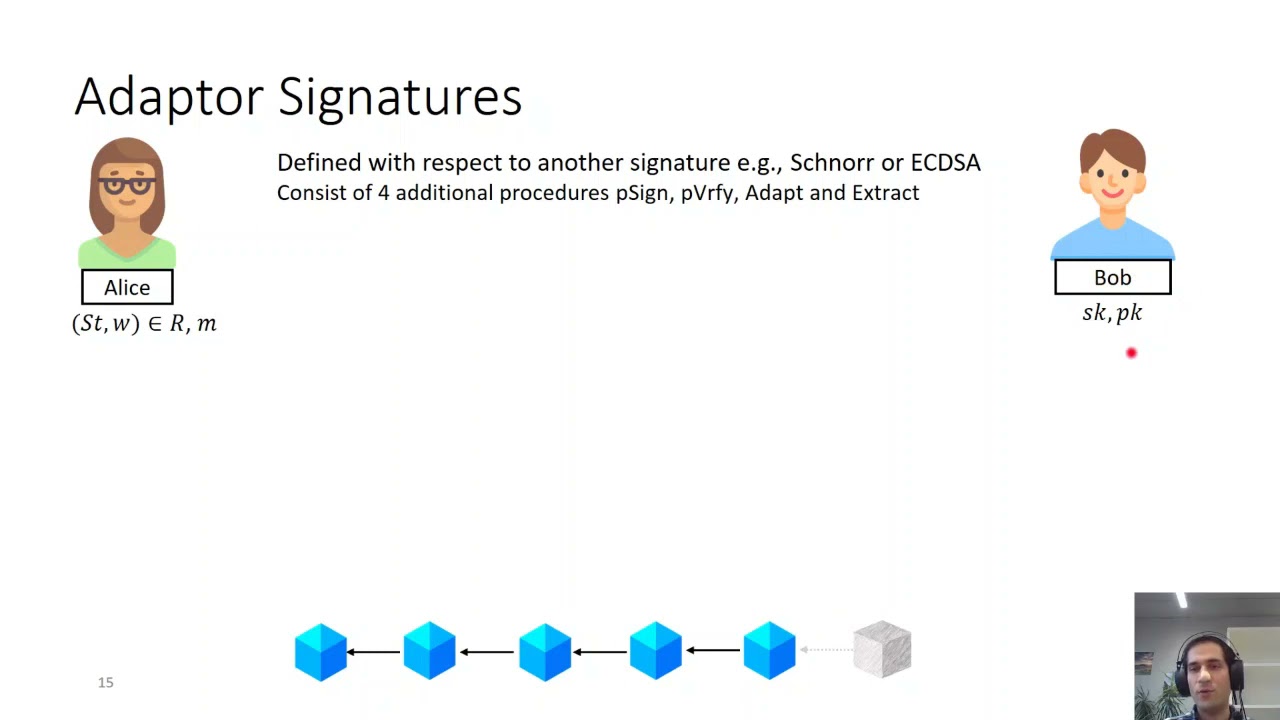Welcome to the resource topic for 2020/476
Title:
Generalized Channels from Limited Blockchain Scripts and Adaptor Signatures
Authors: Lukas Aumayr, Oguzhan Ersoy, Andreas Erwig, Sebastian Faust, Kristina Hostakova, Matteo Maffei, Pedro Moreno-Sanchez, Siavash Riahi
Abstract:Decentralized and permissionless ledgers offer an inherently low transaction rate, as a result of their consensus protocol demanding the storage of each transaction on-chain. A prominent proposal to tackle this scalability issue is to utilize off-chain protocols, where parties only need to post a limited number of transactions on-chain. Existing solutions can roughly be categorized into: (i) application-specific channels (e.g., payment channels), offering strictly weaker functionality than the underlying blockchain; and (ii) state channels, supporting arbitrary smart contracts at the cost of being compatible only with the few blockchains having Turing-complete scripting languages (e.g., Ethereum). In this work, we introduce and formalize the notion of generalized channels allowing users to perform any operation supported by the underlying blockchain in an off-chain manner. Generalized channels thus extend the functionality of payment channels and relax the definition of state channels. We present a concrete construction compatible with any blockchain supporting transaction authorization, time-locks and constant number of Boolean \land and \lor operations – requirements fulfilled by many (non-Turing-complete) blockchains including the popular Bitcoin. To this end, we leverage adaptor signatures – a cryptographic primitive already used in the cryptocurrency literature but formalized as a standalone primitive in this work for the first time. We formally prove the security of our generalized channel construction in the Universal Composability framework. As an important practical contribution, our generalized channel construction outperforms the state-of-the-art payment channel construction, the Lightning Network, in efficiency. Concretely, it halves the off-chain communication complexity and reduces the on-chain footprint in case of disputes from linear to constant in the number of off-chain applications funded by the channel. Finally, we evaluate the practicality of our construction via a prototype implementation and discuss various applications including financially secured fair two-party computation.
ePrint: https://eprint.iacr.org/2020/476
Talk: https://www.youtube.com/watch?v=EvfLJz3q86k
See all topics related to this paper.
Feel free to post resources that are related to this paper below.
Example resources include: implementations, explanation materials, talks, slides, links to previous discussions on other websites.
For more information, see the rules for Resource Topics .
